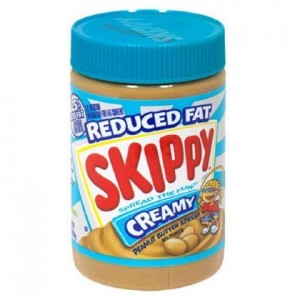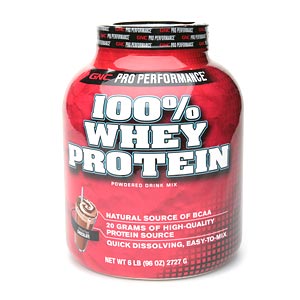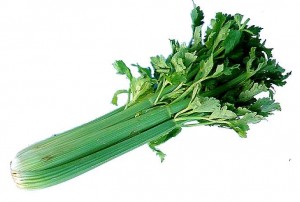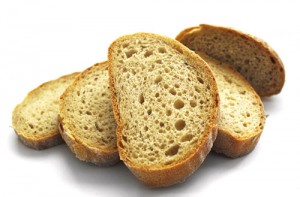Carbs don’t make you fat: 5 food myths, busted!
February 16th, 2012
Despite the wealth of information out there on the topic of nutrition, there are some food myths out there that refuse to die. So today, in no part icular order, Appliances Online is dishing up the dirt on some of the most persistent ideas about food that are, in most cases, totally unfounded:
icular order, Appliances Online is dishing up the dirt on some of the most persistent ideas about food that are, in most cases, totally unfounded:
1. Reduced fat foods are better for you
Anyone familiar with the ‘Fat Free Yoghurt’ episode of Seinfeld will know: ‘fat free’ does not necessarily mean ‘healthy’. When you remove fat from food you also usually remove a lot of flavour – which is why you’ll often find the ‘fat reduced’ options have a higher sugar and salt content and even sometimes more calories than the original.
As this blogger puts it:
“Fat will always taste good, and it will always have fat in it. It is why you fell in love with peanut butter in the first place. It is the moody, complex artist you went after, then dated, then got upset with for being moody and complex. It’s time to embrace reality.”
Our advice? Rather than chowing down on large amounts of ‘fat-reduced’ foods, just eat a smaller portion of the original and take the time to enjoy it.
2. Mor e protein = more muscle mass
e protein = more muscle mass
Apologies for making another potentially obscure pop culture reference, but one only needs to picture South Park’s Cartman screaming ‘Beefcake! BEEFCAKE!’ to realise that protein supplements are a marketing gimmick aimed at the gullible.
Many people mistakenly believe that you need to eat large amounts of protein in order to build muscle mass, which isn’t true. As dietician Andy Bellatti explains:
“Acquiring muscle mass is achieved by shocking muscle groups and eating additional calories.
Some of these calories will surely come from protein, but also fats and carbohydrates.
Many people make the mistake of concentrating solely on protein, missing out on excess calories. Without more calories, you will not put on muscle mass!”
Andy recommends eating a snack that contains complex carbohydrates and protein no later than 45 minutes after your workout for optimal glycogen refuelling. A glass of skim milk and a tablespoon of peanut butter on whole wheat toast is one good example.
3. Celery is a negative calorie food
We’ve all heard this one: that celery contains so few calories that you actually burn more calories digesting it – hence why it’s been labelled a ‘negative calorie food’.
Sounds brilliant, right? That you could actually lose weight by eating?
Sorry to rain on your zero calorie parade, but the average stick of celery contains around 6 calories, which takes around half a calorie to digest. Now I’m not very good at maths, but even I can tell that the numbers don’t add up – even if you happen to be the world’s most energetic chewer.
Which is not to say you shouldn’t eat celery – you should (it’s very good for you) – but if weight loss is your goal you might want to try to incorporate some exercise into your daily routine, as ploddingly old fashioned as that concept may be.
4. Salt is bad for you
Salt is bad for you, right?
Well, not necessarily. Consider this except from an article published in Scientific American (08/07/11):
“…a meta-analysis of seven studies involving a total of 6,250 subjects in the American Journal of Hypertension found no strong evidence that cutting salt intake reduces the risk for heart attacks, strokes or death in people with normal or high blood pressure. In May European researchers publishing in the Journal of the American Medical Association reported that the less sodium that study subjects excreted in their urine—an excellent measure of prior consumption—the greater their risk was of dying from heart disease. These findings call into question the common wisdom that excess salt is bad for you.“
Which doesn’t mean we can all start slathering everything we eat with salt – the key, of course, is moderation. Too little sodium in your diet can be just as unhealthy as too much. But if you’re worried about your sodium intake, you could try balancing it by consuming more potassium (which is known to have a regulatory effect on blood pressure). Rich sources of potassium include bananas, spinach, beans and broccoli.
5. Carbs make you fat
 Poor carbs. I remember a time when carbs were the staple of every diet – firmly at the bottom of the food pyramid (which, suspiciously, was often found of the side of cereal boxes). These days, ‘carb’ has become a dirty word, with annoying dinner guests everywhere behaving as if gluten were not a benign protein found in wheat but an axe-wielding psychopath standing poised at the end of the table, ready to murder kittens.
Poor carbs. I remember a time when carbs were the staple of every diet – firmly at the bottom of the food pyramid (which, suspiciously, was often found of the side of cereal boxes). These days, ‘carb’ has become a dirty word, with annoying dinner guests everywhere behaving as if gluten were not a benign protein found in wheat but an axe-wielding psychopath standing poised at the end of the table, ready to murder kittens.
“Oh, I never eat bread,” they’ll say, pronouncing the word ‘bread’ with the same intonation usually reserved for words like ‘swine flu’ and ‘infected boil’.
To which I say: stop hating on carbs, yo. They’re not as bad as you think – in fact they make up a vital component of a healthy balanced diet.
Part of the reason why carbs have been demonised is the idea that eating carbohydrates raises insulin levels, which in turn lowers blood sugar. Low blood sugar increases appetite so people tend to end up eating more.
The reality is there are different types of carbohydrate – some which are easier to digest than others. What you want is a diet that includes more complex carbohydrates such as grain breads, vegetables and legumes rather than refined carbohydrates that are high in sugar (such as white bread, biscuits and cakes). Complex carbohydrates make you feel fuller for longer which makes it easier to limit your daily calorie intake – thus making it easier to maintain a healthy weight.
In conclusion, no one says it better than the author of ‘In Defence of Food’ Michael Pollan: “Eat food. Not too much. Mostly plants.”

Quoting a blog post, or an individual’s personal website doesn’t “bust a myth” as you claim, it only recounts someone else’s opinion that supports your argument, it is not in any way authoritative or conclusive. If you want to bust something, as you contend that you do, do the research and quote material published in real peer reviewed journals that support your assertions. You should also be careful to differentiate between meta-studies and actual research as they are not intended to prove or disprove anything, only find patterns of interest in data that may warrant further investigation.
You might want to consider how “good” grain breads actually differ from “bad” white bread. Try making some. They are almost exactly the same, consisting of mostly highly refined wheat flower, and sugar or some other similar sweetener. Saying one is good and the other is bad without evidence to suggest why is a flawed argument.
Yes, choosing not to eat wheat because it contains gluten has become a growing trend, with more people being diagnosed with autoimmune responses to the protein every year. But even if they are not celiac, many are choosing to avoid grains that haven’t been fermented or sprouted due to their phytic acid content, which can actually lower the bioavailability of nutrients in food. Secondly gluten is not as benign as you might think, one of the protein groups in gluten, called gliadin, has been shown to activate zonulin signalling and cause increased gut permeability irrespective of the persons generic expression of autoimmunity to gluten. In other words, it can facilitate an environment in which undigested fecal matter can pass through the intestinal wall into the blood stream. Read this for more detail http://www.fourhourworkweek.com/blog/2010/09/19/paleo-diet-solution/ Gluten aside, here is another interesting article that suggests why eating too many carbs may not be a good thing, and it’s not because of calories or insulin, but brain chemistry. http://www.robbwolf.com/2012/02/15/carb-addiction-cake-is-the-new-crack